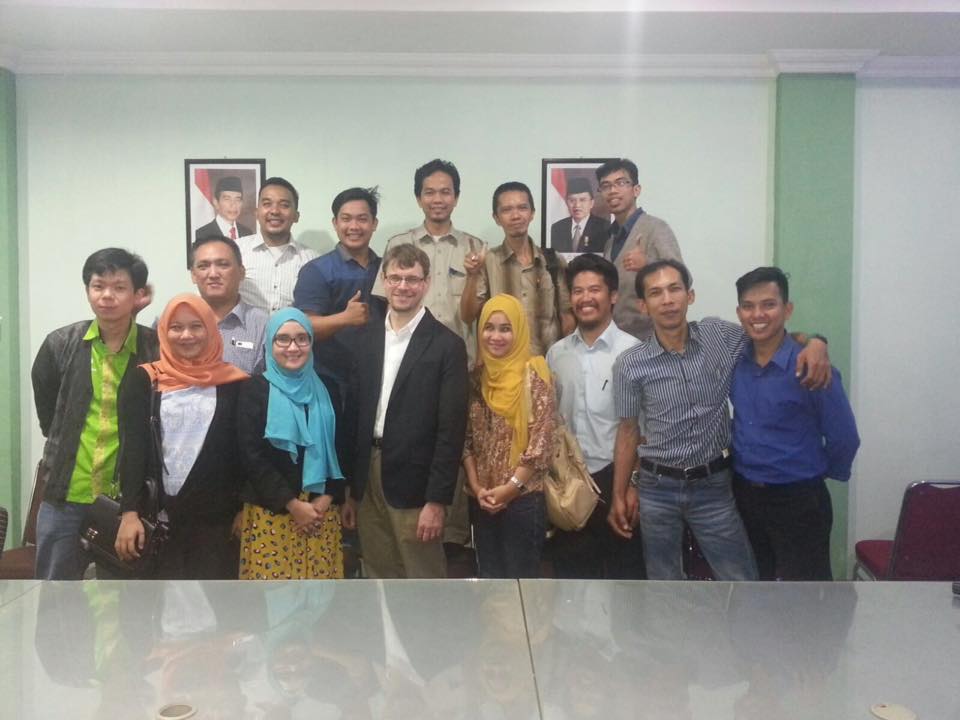Secondary menu
You are here
Teaching
The following courses are taught by BITS lab members, both as instructor and teaching assistants.
I232 Information Theory in the 2-2 Semester (December-January 2012–2016). Information theory is about the mathematical fundamentals of information transmission and information compression. What are the fundamental limits of information transmission? What are the fundamental limits of data compression? This class will answer questions like these, covering topics such as information entropy, mutual information, Huffman coding and compression, entropy rate, Shannon's channel capacity theorem, lossy compression and network information theory.
I437 Coding Theory in the 2-1 Semester (October–November 2012, 2014, 2016). Error-correcting codes are fundamental to modern digital life. They guarantee the reliability of data transmission and storage in mobile phones, wireless data connections, fiber optic connections, solid-state storage and hard disks. After completing this course, students will have an understanding of both the mathematical fundamentals and practical approaches to coding theory. After completing this course, students should be able to implement encoding/decoding of error-correcting codes, as well as apply coding theory to new communication and data storage systems
Lattice Coding Theory is not an official JAIST course, but is being developed to teach about lattices for communicaitons. Some content from this short course is avaialble on the elearning page. Login using your gmail account, and then click "Enrol".
Information Theory at UNSRI. In 2015 and 2016, the information theory course was taught remotely at Sriwijaya University (UNSRI) in Palembang, Indonesia. Lectures are given via a teleconference system, and students access the same on-line learning system used by JAIST students. This teaching promotes the relationship between JAIST and UNSRI under a memorandum of understanding between the univesties in two ways: (1) to identify highly motivated students who may be interested in coming to JAIST and to (2) identify areas of common research interest, to conduct collbaorative research. An additional motivation for remote teaching is to develop high-quality online elearning content, which is suitable not only for JAIST students, but for a large diversity of students interested in studying information theory.

Information Theory 2015 course at Srijiwaya University (UNSRI), during a visit November 29-December 2, 2015. Lectures via teleconference system and an e-learning system in September, October and November. 13 students took the final exam.